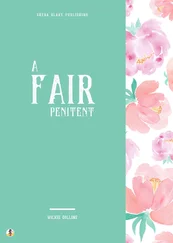Wilkie Collins - Little Novels
Здесь есть возможность читать онлайн «Wilkie Collins - Little Novels» весь текст электронной книги совершенно бесплатно (целиком полную версию без сокращений). В некоторых случаях можно слушать аудио, скачать через торрент в формате fb2 и присутствует краткое содержание. Год выпуска: 1999, Жанр: Классическая проза, на английском языке. Описание произведения, (предисловие) а так же отзывы посетителей доступны на портале библиотеки ЛибКат.
- Название:Little Novels
- Автор:
- Жанр:
- Год:1999
- ISBN:нет данных
- Рейтинг книги:5 / 5. Голосов: 1
-
Избранное:Добавить в избранное
- Отзывы:
-
Ваша оценка:
- 100
- 1
- 2
- 3
- 4
- 5
Little Novels: краткое содержание, описание и аннотация
Предлагаем к чтению аннотацию, описание, краткое содержание или предисловие (зависит от того, что написал сам автор книги «Little Novels»). Если вы не нашли необходимую информацию о книге — напишите в комментариях, мы постараемся отыскать её.
Little Novels — читать онлайн бесплатно полную книгу (весь текст) целиком
Ниже представлен текст книги, разбитый по страницам. Система сохранения места последней прочитанной страницы, позволяет с удобством читать онлайн бесплатно книгу «Little Novels», без необходимости каждый раз заново искать на чём Вы остановились. Поставьте закладку, и сможете в любой момент перейти на страницу, на которой закончили чтение.
Интервал:
Закладка:
Unhappily, I missed my footing in the obscure light, and fell on the open ground beyond the stream. When I had gained my feet once more, Stanwick had disappeared among the trees which marked the boundary of the park beyond me. I could see nothing of him, and I could hear nothing of him, when I came out on the high-road. There I met with a laboring man who showed me the way to the village. From the inn I sent a letter to Miss Laroche’s aunt, explaining what had happened, and asking leave to call at the Hall on the next day.
Early in the morning the rector came to me at the inn. He brought sad news. Miss Laroche was suffering from a nervous attack, and my visit to the Hall must be deferred. Speaking next of the missing man, I heard all that Mr. Loring could tell me. My intimate knowledge of Stanwick enabled me to draw my own conclusion from the facts. The thought instantly crossed my mind that the poor wretch might have committed his expiatory suicide at the very spot on which he had attempted to kill me. Leaving the rector to institute the necessary inquiries, I took post-horses to Maplesworth on my way to Herne Wood.
Advancing from the high-road to the wood, I saw two persons at a little distance from me—a man in the dress of a gamekeeper, and a lad. I was too much agitated to take any special notice of them; I hurried along the path which led to the clearing. My presentiment had not misled me. There he lay, dead on the scene of the duel, with a blood-stained razor by his side! I fell on my knees by the corpse; I took his cold hand in mine; and I thanked God that I had forgiven him in the first days of my recovery.
I was still kneeling, when I felt myself seized from behind. I struggled to my feet, and confronted the gamekeeper. He had noticed my hurry in entering the wood; his suspicions had been aroused, and he and the lad had followed me. There was blood on my clothes; there was horror in my face. Appearances were plainly against me; I had no choice but to accompany the gamekeeper to the nearest magistrate.
My instructions to my solicitor forbade him to vindicate my innocence by taking any technical legal objections to the action of the magistrate or of the coroner. I insisted on my witnesses being summoned to the lawyer’s office, and allowed to state, in their own way, what they could truly declare on my behalf; and I left my defense to be founded upon the materials thus obtained. In the meanwhile I was detained in custody, as a matter of course.
With this event the tragedy of the duel reached its culminating point. I was accused of murdering the man who had attempted to take my life!
This last incident having been related, all that is worth noticing in my contribution to the present narrative comes to an end. I was tried in due course of law. The evidence taken at my solicitor’s office was necessarily altered in form, though not in substance, by the examination to which the witnesses were subjected in a court of justice. So thoroughly did our defense satisfy the jury, that they became restless toward the close of the proceedings, and returned their verdict of Not Guilty without quitting the box.
When I was a free man again, it is surely needless to dwell on the first use that I made of my honorable acquittal. Whether I deserved the enviable place that I occupied in Bertha’s estimation, it is not for me to say. Let me leave the decision to the lady who has ceased to be Miss Laroche—I mean the lady who has been good enough to become my wife.
MISS DULANE AND MY LORD.
Part I.
TWO REMONSTRATIONS.
I.
ONE afternoon old Miss Dulane entered her drawing-room; ready to receive visitors, dressed in splendor, and exhibiting every outward appearance of a defiant frame of mind.
Just as a saucy bronze nymph on the mantelpiece struck the quarter to three on an elegant clock under her arm, a visitor was announced—“Mrs. Newsham.”
Miss Dulane wore her own undisguised gray hair, dressed in perfect harmony with her time of life. Without an attempt at concealment, she submitted to be too short and too stout. Her appearance (if it had only been made to speak) would have said, in effect: “I am an old woman, and I scorn to disguise it.”
Mrs. Newsham, tall and elegant, painted and dyed, acted on the opposite principle in dressing, which confesses nothing. On exhibition before the world, this lady’s disguise asserted that she had reached her thirtieth year on her last birthday. Her husband was discreetly silent, and Father Time was discreetly silent: they both knew that her last birthday had happened thirty years since.
“Shall we talk of the weather and the news, my dear? Or shall we come to the object of your visit at once?” So Miss Dulane opened the interview.
“Your tone and manner, my good friend, are no doubt provoked by the report in the newspaper of this morning. In justice to you, I refuse to believe the report.” So Mrs. Newsham adopted her friend’s suggestion.
“You kindness is thrown away, Elizabeth. The report is true.”
“Matilda, you shock me!”
“Why?”
“At your age!”
“If he doesn’t object to my age, what does it matter to you? ”
“Don’t speak of that man!”
“Why not?”
“He is young enough to be your son; and he is marrying you—impudently, undisguisedly marrying you—for your money!”
“And I am marrying him—impudently, undisguisedly marrying him—for his rank.”
“You needn’t remind me, Matilda, that you are the daughter of a tailor.”
“In a week or two more, Elizabeth, I shall remind you that I am the wife of a nobleman’s son.”
“A younger son; don’t forget that.”
“A younger son, as you say. He finds the social position, and I find the money—half a million at my own sole disposal. My future husband is a good fellow in his way, and his future wife is another good fellow in her way. To look at your grim face, one would suppose there were no such things in the world as marriages of convenience.”
“Not at your time of life. I tell you plainly, your marriage will be a public scandal.”
“That doesn’t frighten us,” Miss Dulane remarked. “We are resigned to every ill-natured thing that our friends can say of us. In course of time, the next nine days’ wonder will claim public attention, and we shall be forgotten. I shall be none the less on that account Lady Howel Beaucourt. And my husband will be happy in the enjoyment of every expensive taste which a poor man call gratify, for the first time in his life. Have you any more objections to make? Don’t hesitate to speak plainly.”
“I have a question to ask, my dear.”
“Charmed, I am sure, to answer it—if I can.”
“Am I right in supposing that Lord Howel Beaucourt is about half your age?”
“Yes, dear; my future husband is as nearly as possible half as old as I am.”
Mrs. Newsham’s uneasy virtue shuddered. “What a profanation of marriage!” she exclaimed.
“Nothing of the sort,” her friend pronounced positively. “Marriage, by the law of England (as my lawyer tells me), is nothing but a contract. Who ever heard of profaning a contract?”
“Call it what you please, Matilda. Do you expect to live a happy life, at your age, with a young man for your husband?”
“A happy life,” Miss Dulane repeated, “because it will be an innocent life.” She laid a certain emphasis on the last word but one.
Mrs. Newsham resented the emphasis, and rose to go. Her last words were the bitterest words that she had spoken yet.
“You have secured such a truly remarkable husband, my dear, that I am emboldened to ask a great favor. Will you give me his lordship’s photograph?”
Читать дальшеИнтервал:
Закладка:
Похожие книги на «Little Novels»
Представляем Вашему вниманию похожие книги на «Little Novels» списком для выбора. Мы отобрали схожую по названию и смыслу литературу в надежде предоставить читателям больше вариантов отыскать новые, интересные, ещё непрочитанные произведения.
Обсуждение, отзывы о книге «Little Novels» и просто собственные мнения читателей. Оставьте ваши комментарии, напишите, что Вы думаете о произведении, его смысле или главных героях. Укажите что конкретно понравилось, а что нет, и почему Вы так считаете.











